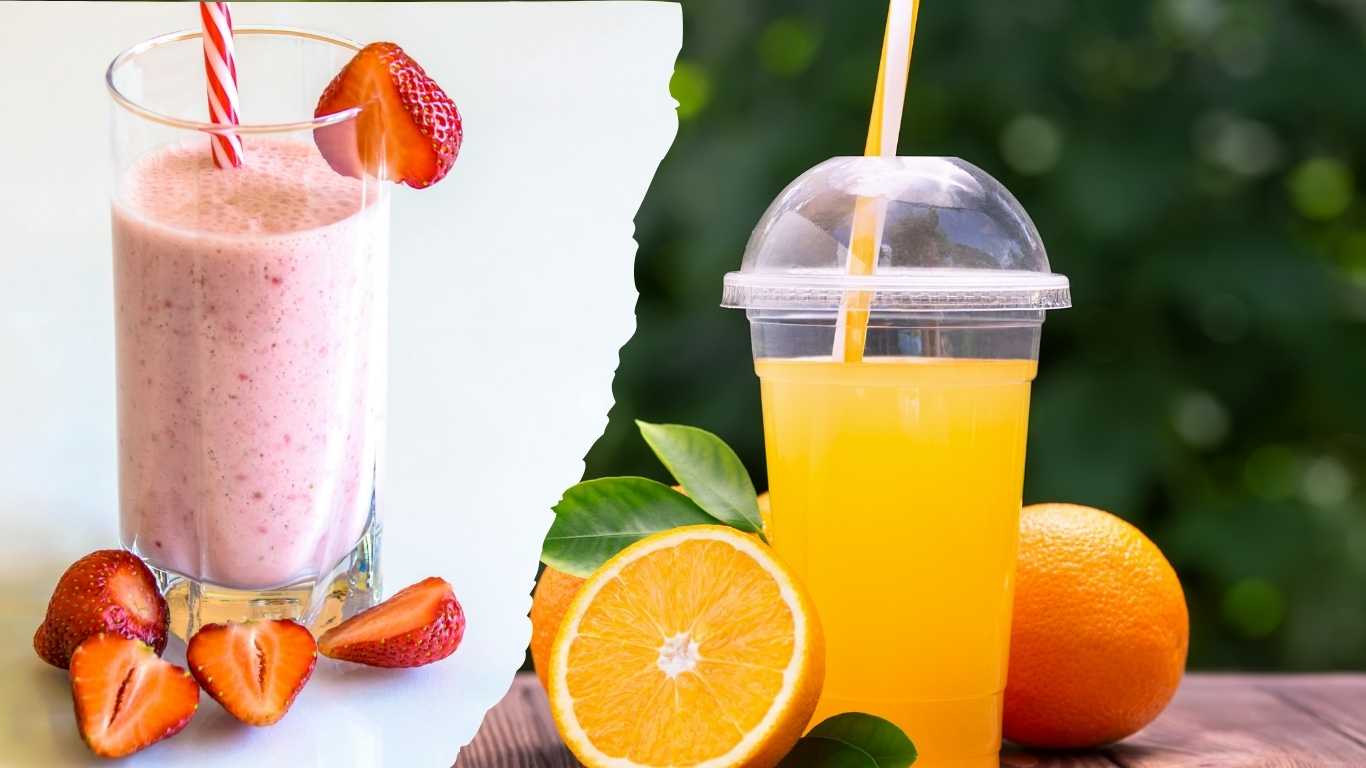Juice or Smoothie? The Great Fruit Showdown!
Hold on a sec, smoothie lovers and juice enthusiasts! It's time to settle the fruity showdown for good: juice or smoothie?
- Entrefemme
- May 14, 2025
- 0 Comments
- 2395 Views
Both options boast vibrant colors and promise a delicious dose of vitamins, but which one reigns supreme in the health department? This article throws down the gauntlet in the Great Fruit Showdown! We'll explore the pros and cons of each contender, unveil the surprising truths behind the hype, and ultimately help you choose the perfect fruity fuel for your body and your goals. So, grab your imaginary boxing gloves (and maybe a blender!) because it's about to get juicy!
I. Definitions and Differences:
Juices and smoothies are popular beverages made from fruits and vegetables but differ significantly in ingredients, preparation, and consistency. Juices are beverages obtained by pressing fruits and vegetables to extract their juice. This preparation removes the pulp and fibers, leaving only the nutrient-rich liquid. Juices are often considered a concentrated source of vitamins, minerals, and antioxidants.
On the other hand, smoothies are beverages prepared by blending fruits, vegetables, and other ingredients with liquid, such as water, milk, or yogurt. Unlike juices, smoothies retain the pulp and fibers of the ingredients, making them a more satisfying and nutritious option. Smoothies are often thicker and more substantial than juices, making them ideal for a snack or quick meal on the go.
This fundamental distinction between juices and smoothies significantly impacts their nutritional composition and how they affect our bodies. While juices offer quick nutrient absorption, smoothies provide a slower and more sustained release of energy, as well as a prolonged feeling of fullness due to the fibers they contain.
After extensive research, here are some common points that emerge from the majority of recognized nutritionists:
II. Advantages of Smoothies:
- Slow down sugar absorption into the bloodstream
- Contain the fibers of fruits and vegetables for a slower release of sugar
- Help stabilize blood sugar levels and prevent spikes in blood sugar
- More filling due to their fiber content
- Help extend the feeling of fullness and control appetite
- Recommended as a more nutritious and balanced option for snacks or quick meals
Advantages of Fruit Juices:
- Provide a concentrated dose of vitamins and nutrients
- Offer quick hydration and rapid nutrient absorption
- Convenient for consuming a large amount of fruits and vegetables in a single serving
- It can be a good option for people having difficulty eating whole fruits
- Help increase intake of essential vitamins and minerals
Don't hesitate to seek more for your health because it's your health that will enable you to do even more. To find out more about improving your health, click here.
III. Nutritionist's Advice:
The difference between juices and smoothies is also influenced by the manufacturing of industrial juices, often fortified with vitamins or other nutrients. These commercial juices can be very different from freshly pressed homemade juices, as they are usually pasteurized to extend their shelf life, resulting in nutrient and flavor loss. Some industrial juices may also contain additives, added sugar, or other unnatural ingredients to enhance their taste or texture.
Nutritionists generally agree to recommend smoothies over juices due to their health benefits. Dr. Jean Michel, a French nutritionist, and Dr. David Katz, an American nutritionist, and many others believe that smoothies are a better option due to their ability to slow down sugar absorption into the bloodstream. Unlike juices, which provide a concentrated dose of sugar without the fibers that slow its absorption, smoothies still contain the fibers of fruits and vegetables, allowing for a slower release of sugar into the bloodstream. This gradual release of energy helps stabilize blood sugar levels and prevent spikes in blood sugar, which can benefit overall health and weight management.
Moreover, smoothies are often more filling than juices due to their fiber content. Fibers help increase the feeling of fullness and prolong the sensation of satiety, which can help reduce overeating and promote more effective appetite control. As a result, smoothies are often recommended as a more nutritious and balanced option for snacks or quick meals.

 | Unlock Success with Our Guide
| Unlock Success with Our Guide



0 Comments